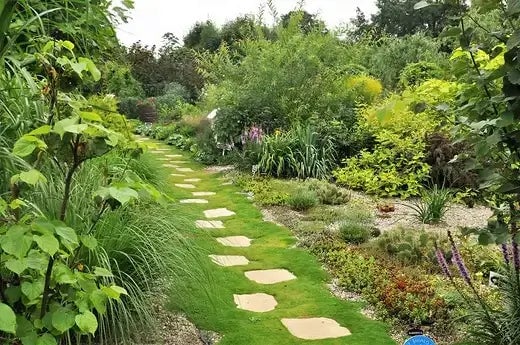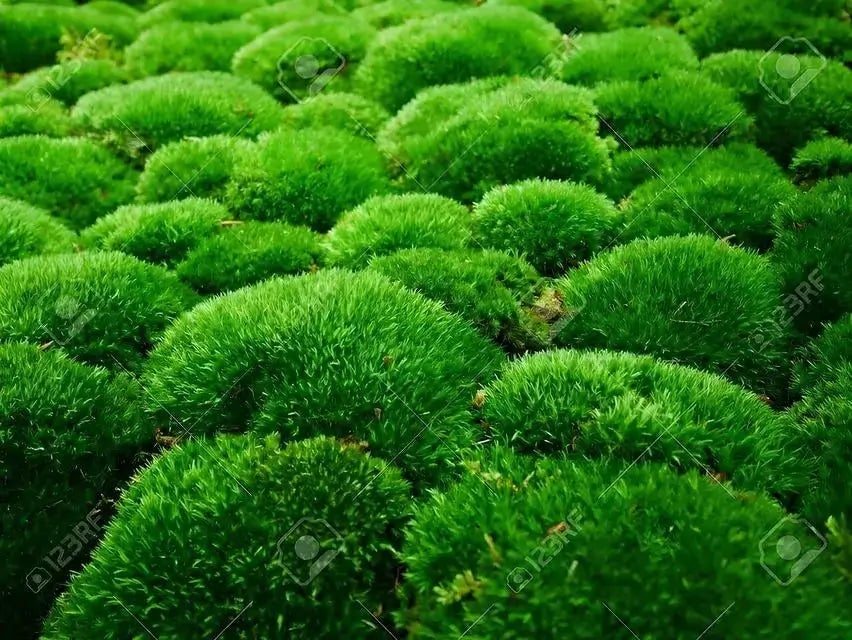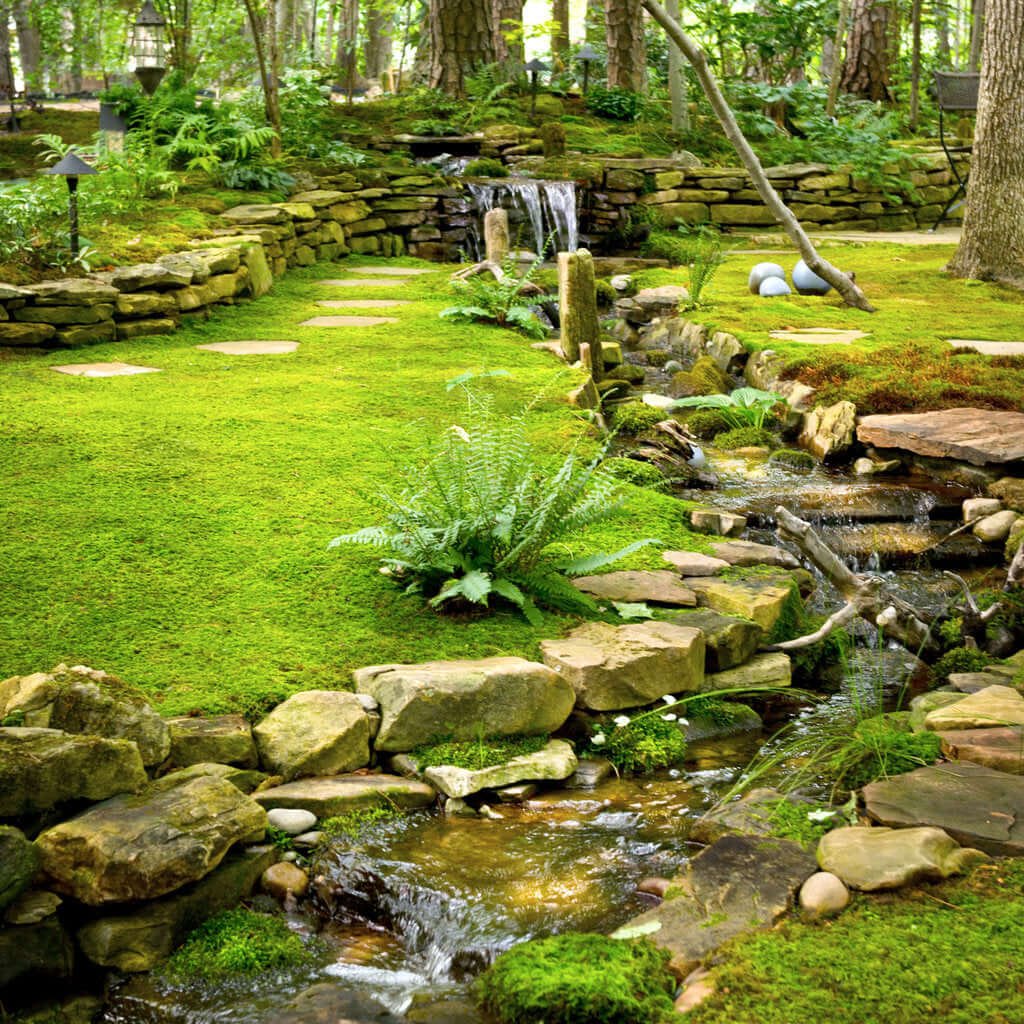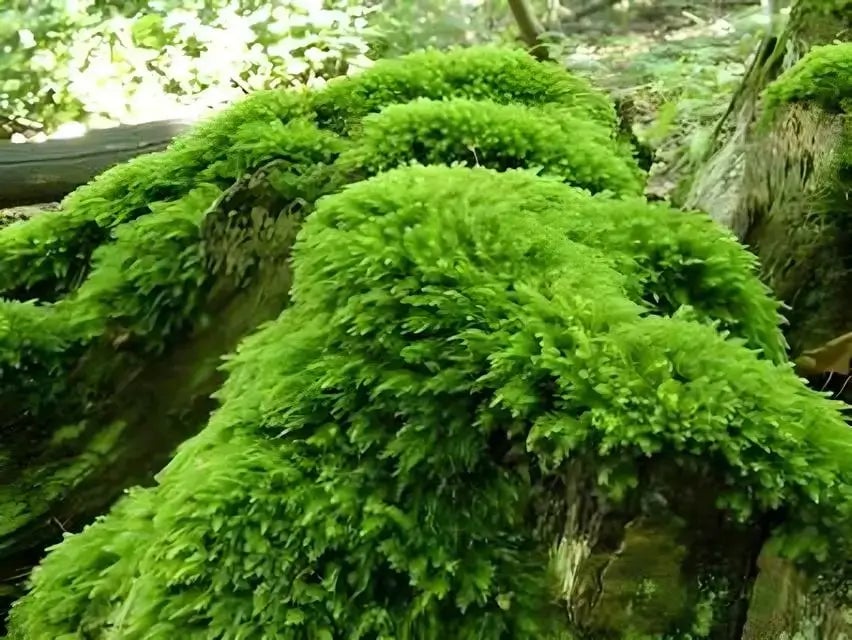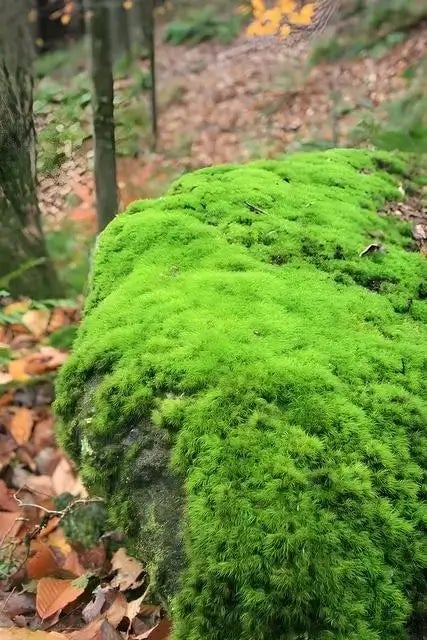The Benefits of Using Moss In Landscaping
TN Nurseries best selling Moss
Sphagnum moss
Mosses are small, flowerless plants that belong to the Musci class and Bryophyta division of plants. They can grow in shaded and damp areas, most commonly on rocks, tree bark, and water, between decorative rocks or brick, and on rooftops. In some cases, they can be found in deserts and the tundra. Most moss species grow to a maximum height of two inches or less, but a few will exceed four inches. The plants lack a traditional root system instead of using rhizoids to anchor themselves. Moss plants also lack seeds instead of using spore capsules for reproduction. While some consider moss a weed, others embrace it and actively work to include it in their landscaping endeavors. There are many benefits to using moss in landscaping projects.
Moss Is Beautiful When Planted In Gardens
The simple, elegant beauty of moss offers several benefits when used in a garden setting. Garden moss grows in various vibrant shades of green, a color that has been shown to evoke feelings of serenity, hope, peace, and safety. Moss is an evergreen type of ground cover, so it will retain its green hue even if it lies dormant. However, dormant moss won't be as bright as live moss. Its timeless beauty is also used to add a feeling of age or stillness to a garden.
Moss Is an Excellent Choice For Shady Areas
Moss requires a substantial amount of moisture to thrive, so it is an excellent choice to plant in shady areas, where moisture is retained more readily than in whole sun areas. It works well in areas where most other plants won't grow well because the ground is too damp, such as near water, under dense foliage, along hills or rocky cliffs. Moss can withstand partial sun, especially if exposed during the morning or evening, but it will not grow well in the direct afternoon sun.
Moss Plants Spread and Absorb Swampy Areas
Swampy areas are perfect places to grow moss. Slow-moving and stagnant water tends to become a breeding ground for mosquitoes. Moss absorbs the excess moisture the mosquitoes need to reproduce, so the area becomes unappealing, and the mosquitoes will vacate the area. Stagnant water can also harbor bacteria, leading to other problems, such as fetid air or illness. Moss not only makes the area look cleaner, but it also will not smell foul or breed potential illness-causing bacteria. Since moss multiplies, these problems can be cleared up relatively quickly.
Mosses Are Easy To Plant and Grow
One of the main benefits of using moss in landscaping projects is the simplicity of
- Clear the area of debris, then give the ground a superficial scratching to loosen the dirt.
- Dampen the ground and lay the moss out.
- Flatten into place. Once the plants are in place, they should be soaked thoroughly and kept moist for two to three weeks to ensure they thrive in their new location.
Once the garden moss thrives, it requires no mowing, fertilizing, pesticides, watering, or liming. If the moss is subjected to high temperatures or low rainfall, it will fall dormant yet remain green. Once the rain begins falling again, the plants will rebound within a matter of hours.
Overall Appearance of Moss Is Lush and Green
Live moss has an appearance that cannot be replicated by man or nature. In some climates, such as the Pacific Northwest, moss is used in place of grass to create a beautiful, velvety lawn. Even the most mundane piece of hardscaping can become lush and vibrant with moss growing on it. Whether used as ground cover in a large area of land, accents in a small flower bed, or as a decorative piece, the inclusion of moss in landscaping projects brings a beautiful sense of peace and serenity.
You can purchase moss today at TN Nursery
Gardening is a beautiful, ecologically beneficial, and mentally soothing hobby. Gardening also tends to make one more aware of the negative aspects of chemical fertilizers and pesticides on the environment. While using more environmentally friendly gardening products is one answer, there is another, much simpler one that few people know about. It is the beautiful practice of gardening with moss.
Moss is not only lovely, but it is an environmentally friendly plant and one that is simple to maintain in good health. There are more benefits to gardening with moss than just enhancing the appearance of your garden, though. Here are some of the others.
Moss is Inexpensive and Easy to Keep Healthy in Your Garden
Most gardening shops will have moss, and it is an inexpensive plant. Carpet moss and sheet moss are the most common types of gardens, but there are others you may want to explore. You can even transfer it directly from the forest to your garden for free, and there is an excellent chance it will latch onto your garden and thrive there.
Moss is straightforward to care for, as it requires nothing special for it to be healthy and vibrant. You don't need to supplement your soil with anything, you don't need to use fertilizer or pesticides on it to keep it in good shape, and it requires no special grooming. You won't have to mow or trim. It tends to stay in its lane once it's transplanted; this means it will enhance the beauty of your garden without overgrowing it. Once you see it, you'll know that moss gives a tranquil fairyland look to any garden.
Moss Improves the Health of Your Garden
Moss will improve the health of other plants in your garden. It does this in a variety of ways. For example, it attracts lizards, frogs, and insects. These charming creatures will keep away undesirable insects for you by eating them. Plus, they add charm to your garden.
Moss has a bitter taste, too, so it will repel animals that might otherwise come to snack on your garden plants, like deer. One taste of moss, and they will stay away.
Another excellent benefit of moss is its ability to deter common garden fungal infections. Biochemical compounds in moss deter these infections, which means you do not have to use environmentally harmful chemicals on your plants to keep them healthy. The moss will do it for you for free.
It Helps to Reduce Air Pollution and Conserves Water
Moss doesn't need to be mowed, so you can dispense with gas-powered lawnmowers that pollute the air. Moss also only needs a tiny bit of hydration to do well. Usually, morning dew is sufficient. In dry spells, you can lightly mist it once a week, and it will be in peak condition.
As you can see, gardening with mosses is a beautiful choice for your garden. Try it, and enjoy the beauty and the benefits.
Read more
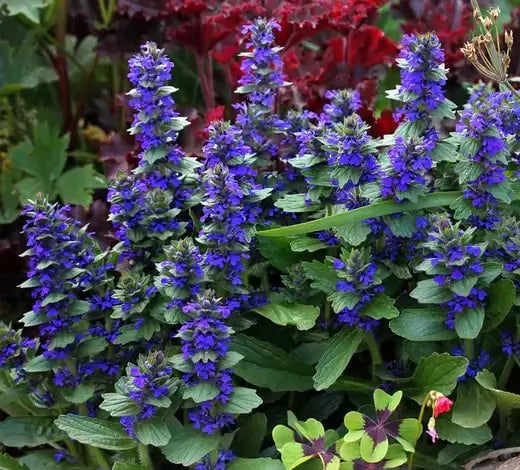
When you are ready to grow ground covers instead of traditional grass, you need to know which plants will be most effective on your lawn.

Maple trees are a popular choice for yards and gardens, and it's easy to see why. They're hardy, have beautiful leaves, and produce delicious syrup. But there are even more reasons to love maple tr...


